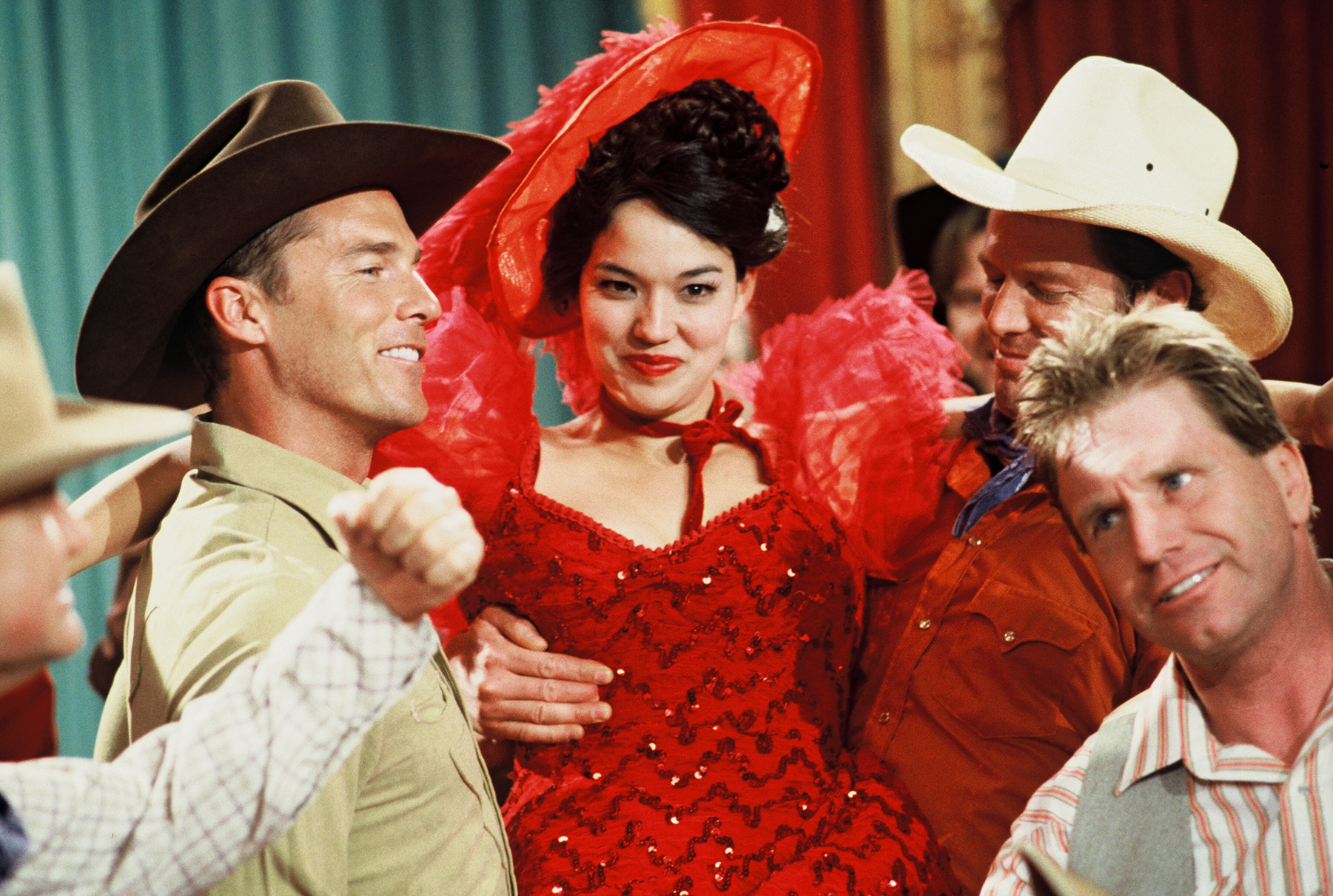Anna Biller in Torino (a 2007 Reader Movies blog post)
A Chicago Reader blog post, dated Saturday, December 1, 2007, 1:46 PM. — J.R.
Two of the more interesting programs that I saw at the just-concluded Torino Film Festival consisted of films by LA filmmaker and Cal Arts alumnus Anna Biller, who writes, directs, stars in, designs the costumes and sets for, and sometimes helps to perform the music in her films, none of which has a distributor at this point. Her first feature, Viva (2006), is a pastiche of 1970s soft-core porn, theoretically reconfigured to support a woman’s viewpoint — an interesting curiosity, but a bit long for my taste (at 120 minutes, longer than any ’70s soft-core flick that I’m aware of), and perhaps not sufficiently aware of its own grotesqueness to qualify as either a critical commentary on its elected genre or as a wholly convincing entry in that genre.
I found her program of earlier 16mm shorts more interesting: Three Examples of Myself as Queen (1994), The Hypnotist (2001 — her only film in which she doesn’t act and which she didn’t write herself, written instead by her partner and frequent collaborator Jared Sanford), and, above all, A Visit from the Incubus (2001, see photos above), a 27-minute horror-western-musical that I regard as her masterpiece.


